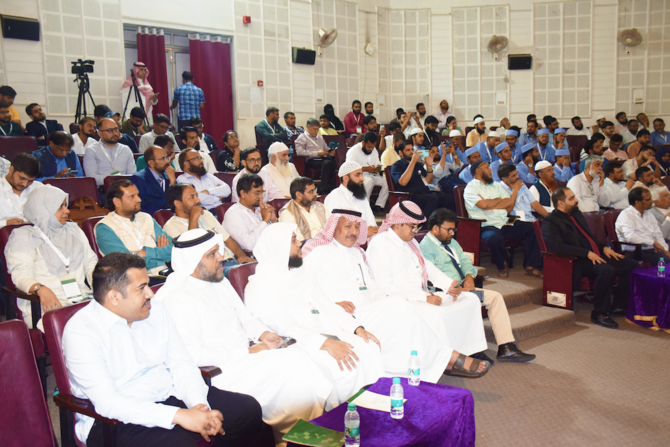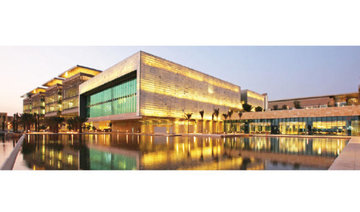RIYADH: King Salman Global Academy for Arabic Language recently concluded the Arabic Language Month in New Delhi and Kerala, India.
The month-long July event featured scientific programs and events in collaboration with educational entities to develop Arabic language curricula, improve teacher performance, and enhance the language’s value in the country.
Activities included visits and meetings with Jawaharlal Nehru University, Kerala University, other Indian universities offering Arabic programs, and associations dedicated to teaching Arabic, as well as a visit to the Saudi Embassy in New Delhi.
The event featured panel discussions on evaluating Arabic teachers for non-Arabic speakers, using technology in education, identifying effective tools and applications, designing modern teaching programs, and addressing issues related to Arabic teaching and learning.
A scientific symposium was also held to discuss Saudi Arabia’s efforts in teaching Arabic to non-speakers, the current state of Arabic education in India, bilingualism, and the challenges of teaching Arabic to non-speakers.
During the month, four courses were conducted to develop the skills of Arabic teachers for non-speakers, focusing on modern teaching strategies and methods. Additionally, four courses for learners focused on reading comprehension and listening skills for non-native Arabic learners.
Abdullah Al-Washmi, the academy’s secretary-general, said that the event contributed to achieving the academy’s goals by showcasing its activities in teaching Arabic to non-native speakers, highlighting the Kingdom’s efforts in promoting Arabic globally, training teachers, improving their competencies, and enhancing learning outcomes for students.
The academy has previously implemented similar activities in Brazil, Uzbekistan, Indonesia, and China.
Al-Washmi said that Arabic Language Month in India highlighted the academy’s strategic role in promoting projects related to Arabic education for non-speakers and strengthening cooperation with entities dedicated to teaching Arabic outside Saudi Arabia.




























